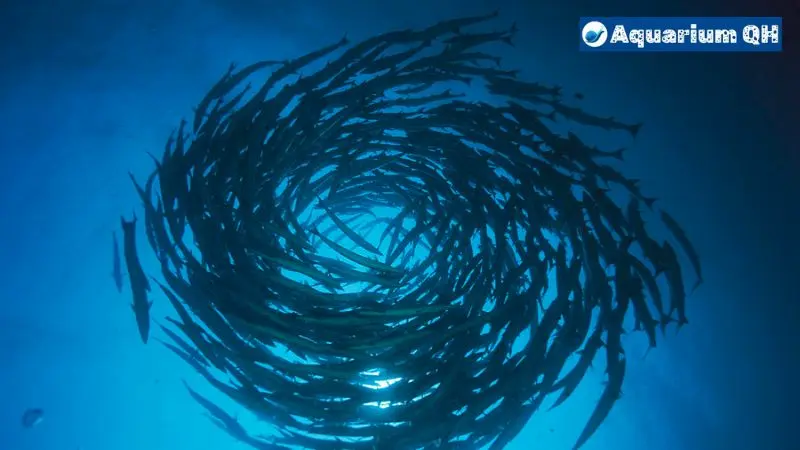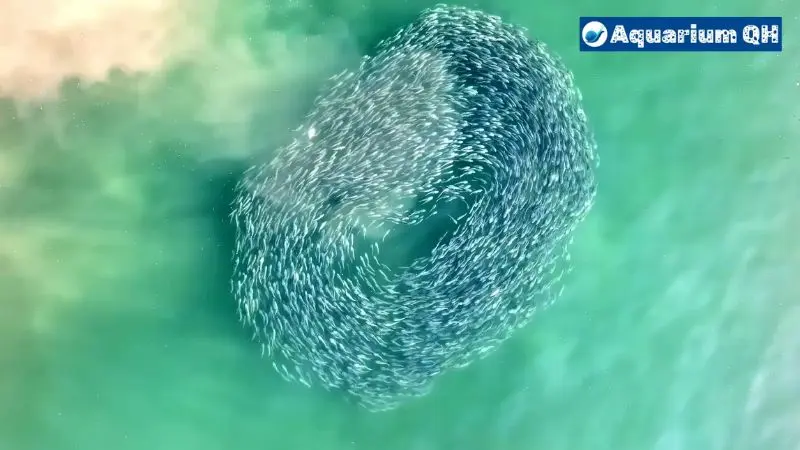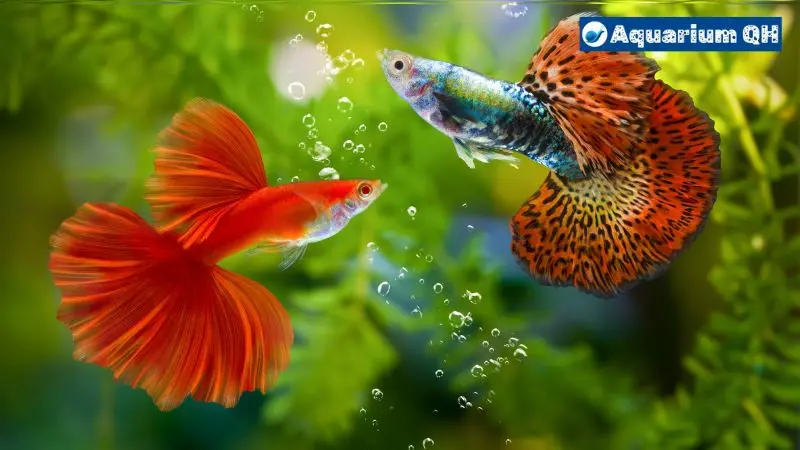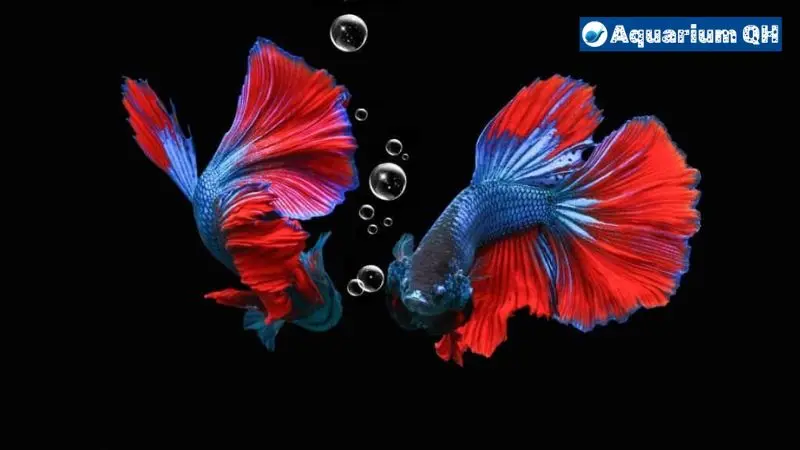If you’ve ever owned fish or spent time observing them, you may have noticed peculiar behavior, such as fish swimming in circles. While it might seem odd at first glance, there are several reasons why fish exhibit this behavior, ranging from environmental factors to physiological issues. Let’s explore with Aquarium QH.
Behavioral Reasons Why Fish Swim in Circles?

Stress
One common reason for fishswimming in circles is stress. Fish can become stressed due to various factors, including changes in water conditions, overcrowding, or the presence of predators. When stressed, fish may exhibit erratic behavior, such as swimming in circles as a way to cope with their environment.
Territorial Behavior
In some cases, fish may swim in circles as a form of territorial behavior. Certain species are known to establish territories within their environment, and swimming in circles can be a way for them to assert dominance or defend their space against intruders.
Reproduction
During the breeding season, fish may swim in circles as part of their courtship ritual. This behavior is often observed in species where males perform elaborate displays to attract females. Swimming in circles can be a way for males to display their fitness and attract potential mates.
Environmental Factors

Water Currents
Strong water currents can sometimes cause fish to swim in circles, especially if they are struggling to maintain their position in the water. Fish may swim against the current or struggle to navigate in turbulent waters, leading to circular swimming patterns.
Lack of Space
In aquariums or other confined spaces, fish may swim in circles due to a lack of space to move freely. Overcrowding can cause stress and competition for resources, prompting fish to swim in repetitive patterns as they navigate their environment.
Illness
Fish swimming in circles can also be a sign of illness or injury. Neurological disorders, such as swim bladder disease, can affect a fish’s ability to control its movements, leading to erratic swimming behavior, including circling.
Physiological Causes
Buoyancy Issues
Some fish may experience buoyancy issues due to factors such as swim bladder problems or improper water conditions. Buoyancy issues can cause fish to struggle with maintaining their balance in the water, leading to circling behavior as they try to adjust their position.
Neurological Disorders
Neurological disorders can also contribute to fish swimming in circles. Conditions affecting the fish’s brain or nervous system can disrupt their normal swimming patterns and coordination, causing them to swim in repetitive circles.
Management and Prevention Fish Swimming in Circles

To address fish swimming in circles, it’s essential to identify and address the underlying cause. Here are some management and prevention strategies:
- Proper Tank Conditions: Ensure that the aquarium environment is well-maintained with suitable water parameters, adequate space, and appropriate decor for fish to hide and explore.
- Stress Reduction Techniques: Minimize stressors in the fish’s environment by avoiding sudden changes, providing adequate hiding spots, and maintaining a consistent feeding schedule.
Conclusion
While fish swimming in circles may seem perplexing at first, it’s essential to consider the various factors that can contribute to this behavior. By understanding the behavioral, environmental, and physiological reasons behind circular swimming patterns, fish owners can better manage and address the needs of their aquatic pets.
FAQs
1. Can fish swimming in circles be harmful?
- Yes, depending on the underlying cause. It’s essential to monitor fish behavior and address any potential issues promptly.
2. How can I tell if my fish is stressed?
- Signs of fish stress include erratic swimming, loss of appetite, and unusual hiding behavior.
3. What should I do if I notice my fish swimming in circles?
- First, assess the aquarium conditions and look for any signs of illness or distress. Consult with a veterinarian or experienced fishkeeper if necessary.
4. Can fish recover from neurological disorders that cause circling behavior?
- In some cases, with proper care and treatment, fish may recover from neurological disorders. However, the prognosis depends on the specific condition and its severity.
5. How can I create a stimulating environment for my fish to prevent circling behavior?
- Provide a variety of hiding spots, plants, and decorations to create a diverse and enriching habitat. Avoid overcrowding and maintain stable water conditions to reduce stress.




